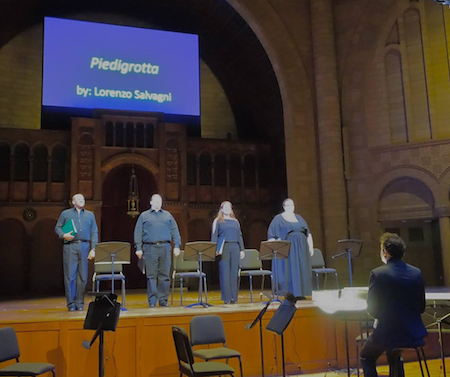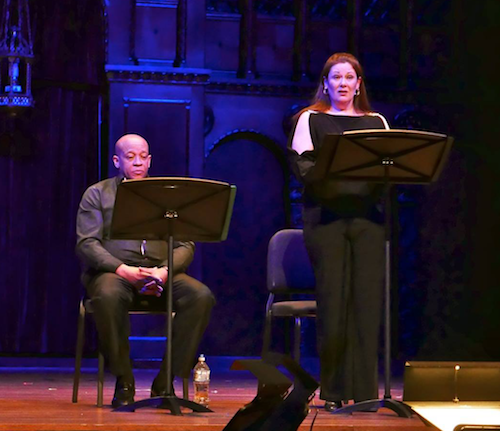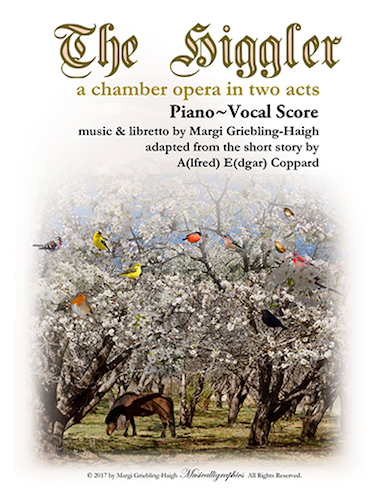by Nicholas Stevens

On January 27, the Maltz hosted a New Scenes Workshop as part of the New Opera Works Festival, a venture spearheaded by COT. The program opened with a set of scenes from Piedigrotta, an opera with music and libretto by Lorenzo Salvagni after an original concept by Michael Lucas.
Loosely inspired by the life stories of Luigi Denza and Peppino Turco (the composer and the lyricist behind the Neapolitan song Funiculì, Funiculà), Piedigrotta depicts the adventures of the semi-fictionalized Luigi as he returns to his titular hometown. Alongside the hero Luigi and sidekick Peppino, the characters Lucia (Luigi’s once and future lover) and Concetta (his mother) appeared in the excerpts performed on Saturday.
Tatiana Loisha, the Festival’s excellent and indefatigable pianist, struck up as sopranos Nan Goltz and Rachel Copeland, tenor Timothy Culver, and baritone Brian Keith Johnson strode onstage to sing the opera’s opening choral number, a peppy paean to the sun. Culver and Johnson harmonized well as Luigi and Peppino, and when Copeland joined in as Lucia, she unleashed her flexible lyric coloratura. A final solo moment for Copeland suggested that her character will turn out to be far more than just an object of the hero’s affections.
Taste of Addiction, a one-act chamber work with music by Ryan Charles Ramer and libretto by Olaf Wessels, presents an intimate portrait of a morbidly obese woman (Copeland) as she struggles with a triple addiction: to food, to religion, and to the priest who visits her (Johnson). Spinning out the word “weakness” into a cascade of pitches across her range, Copeland displayed her vocal prowess, while Johnson, less active in the scene, conveyed a world of emotions through facial expressions and physical gestures. Afterwards, Ramer said he hopes that the work will have both tragic and comic elements in its final form, leaving listeners sympathetic to the protagonist rather than laughing amid her suffering. Time will tell whether this lively composition can have its cake and eat it too.
New Scenes Workshop production coordinator Megan Thompson served as speaking narrator for scenes from The Higgler, Margi Griebling-Haigh’s adaptation of the eponymous short story by early 20th-century English writer A.E. Coppard. The sheer power of Copeland’s voice became apparent in a solo aria, and Johnson laid down hard truths in the title role. Though Griebling-Haigh’s contribution to the workshop seemed the most developed of the three, it also left a question hanging in the air: will the protagonist, trapped into a sorry state of affairs by his own poor decisions, find any peace in the full version?
Published on ClevelandClassical.com January 30, 2018.
Click here for a printable copy of this article




